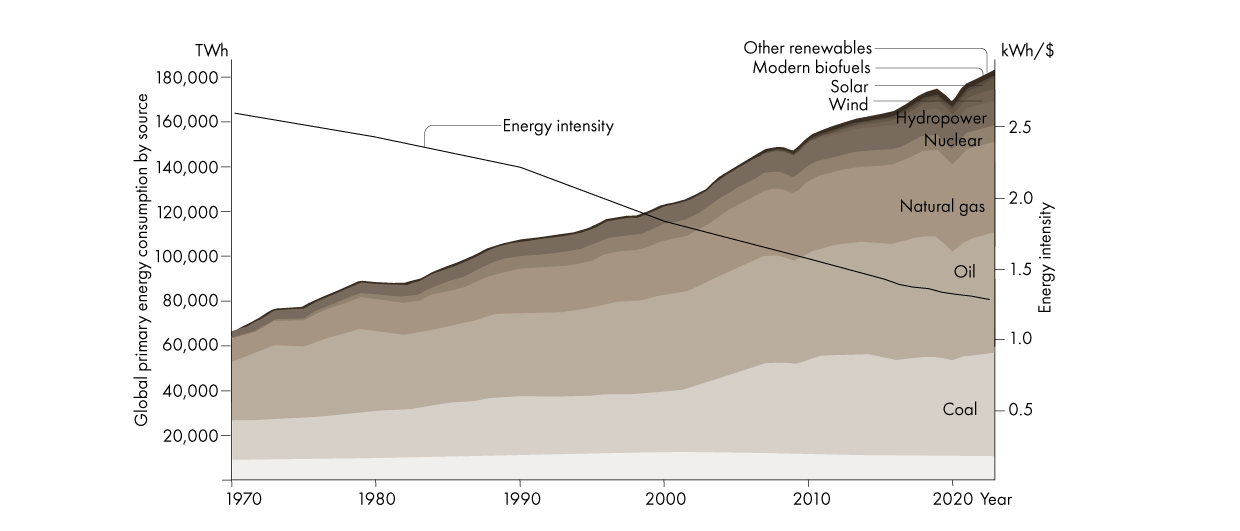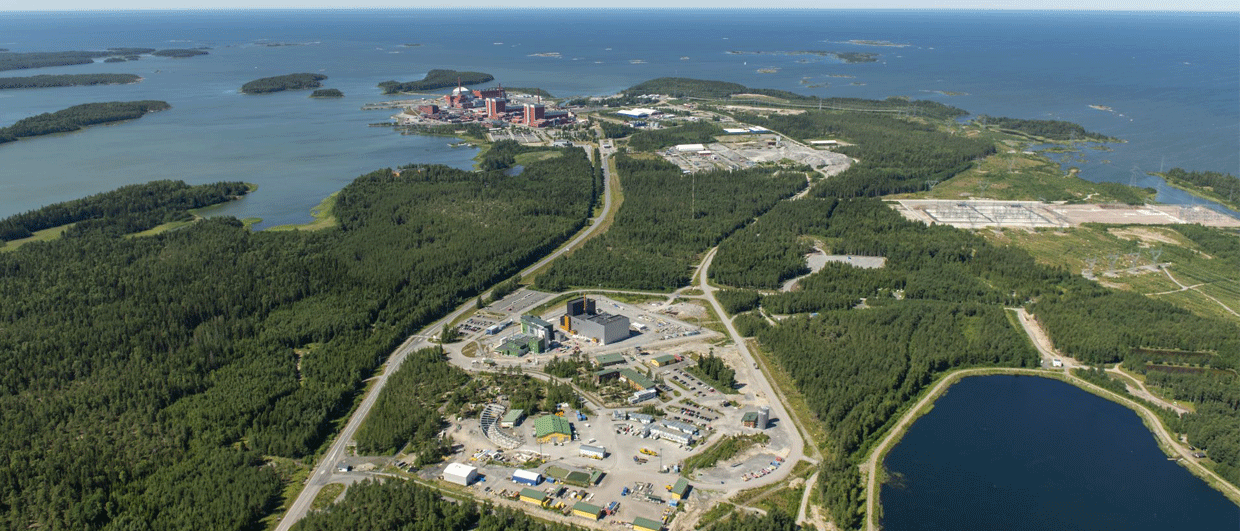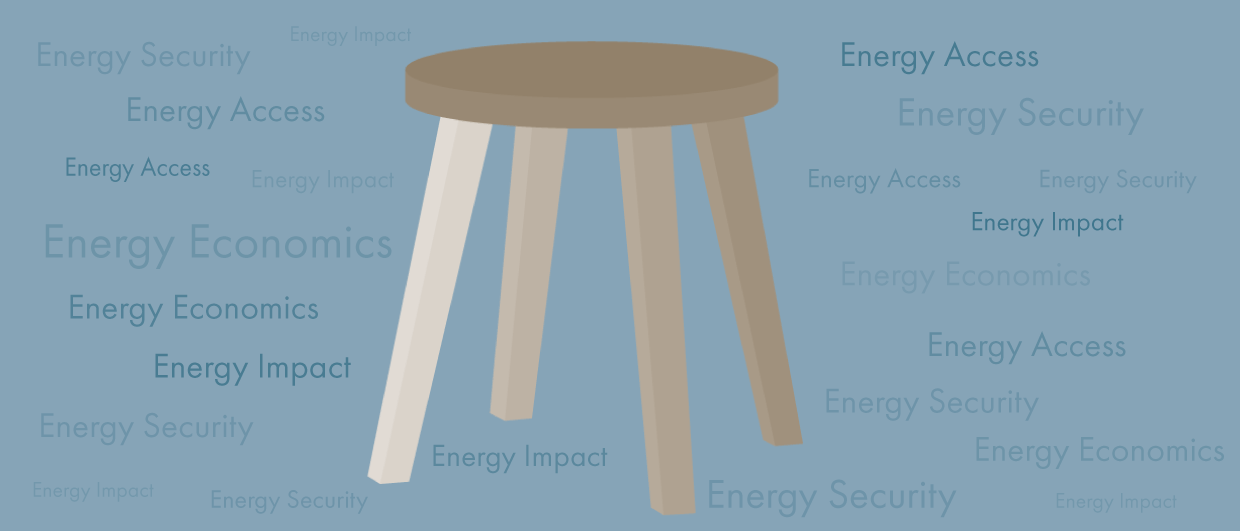The environmental ideology driving the statement, “the sooner hydrocarbons or fossil fuels are gone, the better for the world”, is misguided and misses the fact that to create a positive future for all the worlds citizens, the world desperately needs more energy, not less. European countries that are the “greenest” are in fact the ones that have had a stable pragmatic energy supply the longest. The paradox being that to balance GDP growth with long term environmental goals Europe must have more reliable energy and it must be more affordable, not just greener policies built on energy efficiency.
How are we doing on this task of adding more global energy? In 2010 the world consumed 153,125 tera-watt hours (TWh) of energy, which rose to 183,230 TWh by 2023. Where did this extra 30,105 TWh come from?
Natural gas, the world’s fastest growing energy source, supplied nearly 40 % of additional energy. Oil supplied 24 %, and coal 14 %. In total, hydrocarbons contributed just under 80 % of the growth in energy, which is in line with the little more than 80 % of total global energy they have supplied for decades.
Wind contributed 9 % and solar a little less than 7 %. Hydropower provided 4 % and nuclear a net of zero incremental energy, meaning that roughly equal amount of nuclear capacity was shut down as new capacity was built.
These numbers illustrate that the term energy transition is deceptive. Hopefully, energy sources outside of hydrocarbons can carry more than 20 % of the incremental load in supplying the vital next 54,000 TWh projected for global annual demand by 2050, which is 7,300 TWh or 16 % higher compared to previous IEA estimates in 2021. Nuclear appears to be the most viable option to add sizable low-carbon new energy resources in the coming decades.
Some retort that we don’t need more energy, we just need to use energy more efficiently. The pioneering 19th century English Economist, William Stanley Jevons, addressed this conjecture in his 1865 book The Coal Question. Maybe counter intuitively, he concluded that increases in energy efficiency led to more, not less, coal consumption.
Increases in engine efficiency make it cheaper to travel, enabling increased travel. The figure shows the “Jevons paradox” in action across the entire global energy system over the last +50 years. In it, we can see 53 years of growing demand for energy combined with increasing efficiency in energy usage to generate economic value (GDP). Since 1990, energy efficiency has increased 36 % and total energy consumption has increased 63 %.
Jevons’ observation is only a paradox if the presumed purpose of efficiency gains is to reduce energy consumption. If, on the contrary, the goal is to increase energy availability to enable human prosperity, increasing the efficiency of the energy system becomes a means to that end. As explained in one of my earlier columns, this requires the use of energy sources that have a high net density, which means that hydrocarbons and nuclear are our best options.





